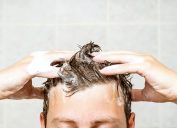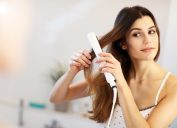This Is How Often You Should Really Be Washing Your Hair, Experts Say
Pro stylists say the answer depends fully on your hair type.
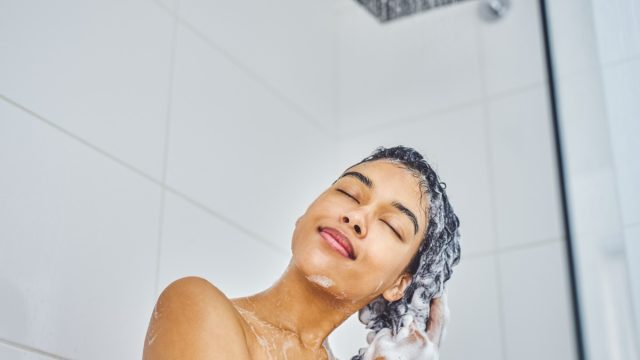
If you're stuck in a daily "lather, rinse, repeat" routine, stylists have news for you: you're probably damaging your hair. Experts say that even those among us with the oiliest tresses should avoid the common pitfall of over-washing. They warn that doing so strips your hair and scalp of their natural oils, which can overstimulate your hair oil glands, creating an even oilier mane. So what's a person to do?
The consensus is that there's value in going longer between washes, and the rule of thumb is that the gentler and more natural the products, the better. That means choosing shampoos that are free of sulfates, parabens, unnatural fragrances, and other toxins. "Your hair needs to produce natural oils," Juliette Dallas-Feeney, senior social media manager and beauty influencer at Birchbox recently told The New York Times. "If you wash it too much, you can strip your hair of them. And if you don't wash your hair enough, it can do the same thing because of product buildup," she said, adding, "your scalp can get yucky and gross."
But that's where the consensus stops. Beyond this, the specific answer for how long you should go between washes depends entirely on your hair type and texture, as well as what you do to care for your hair when not shampooing. Read on for expert opinions on how often you should really be washing your hair, and for more on haircare, find out why You've Been Washing Your Hair Wrong Your Whole Life.
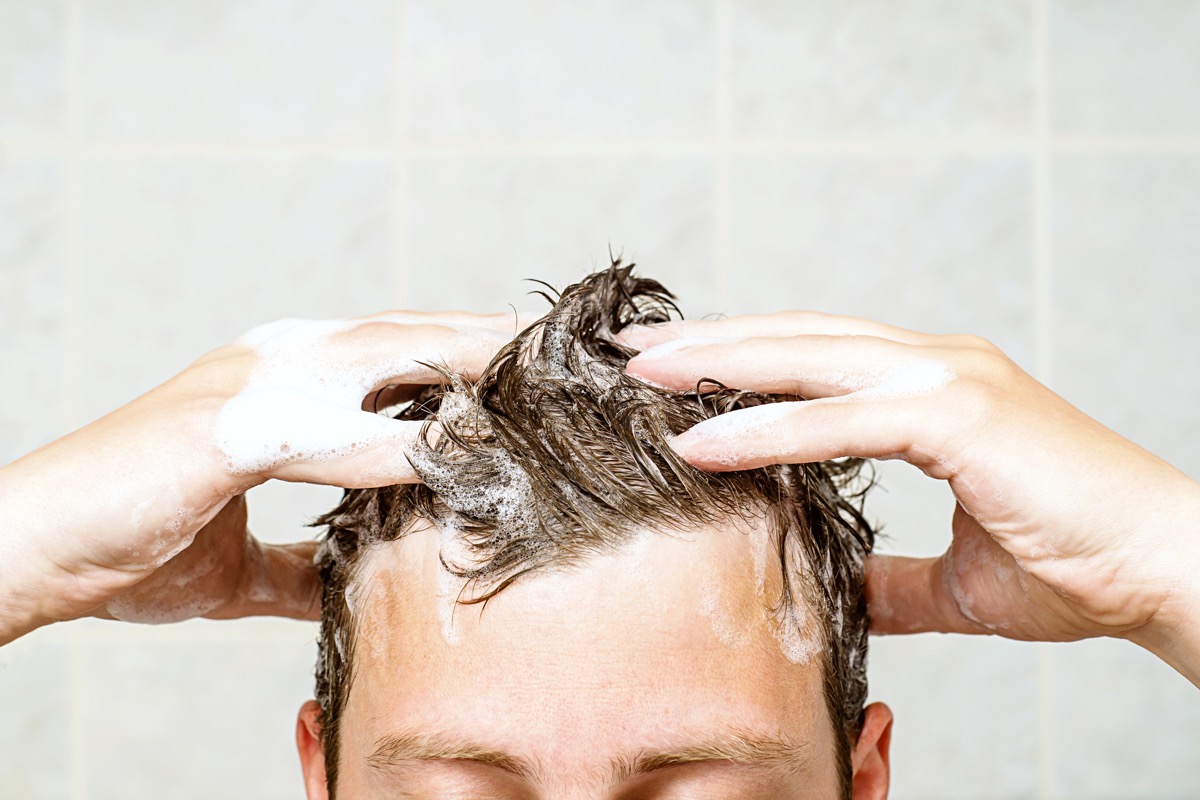
In general, stylists recommend washing your hair every two to three days. This helps avoid stripping your hair with chemicals and gives your mane time to recover between washings by replenishing your natural oils.
"Generally speaking, thick brunette and Asian hair types tend to get greasy quite quickly and should be washed more regularly—maybe around three times a week", Jake Wanstall from London salon Jo Hansford recently told Glamour. Experts add that straight hair can also appear oilier sooner because your scalp's natural oils can travel down the strands faster.
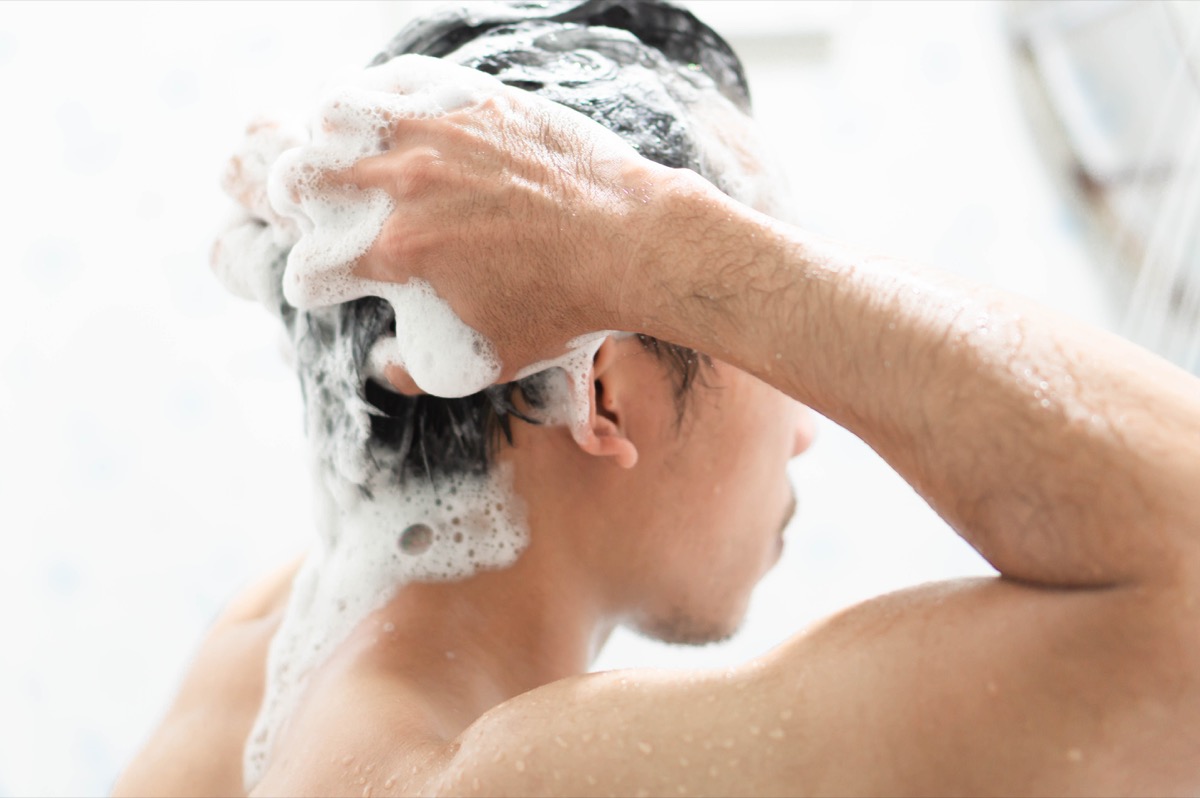
People with curly hair can typically go longer periods of time between washing, as can those individuals who process their hair with harsh products. If you color, bleach, or relax your hair, chances are that it's dryer "and can go longer without being washed," says Wanstall.
As needed on your non-washing days, you can still use natural shampoo alternatives such as ground soapnut powder or a diluted apple cider vinegar rinse to remove any product buildup. And for more cleanliness tips, Here's How Often You Should Really Be Showering.

While going a week or more between washes may seem extreme, many hair types benefit from this extended break from hair products. People with coarse or coily hair textures tend to need as much moisture as they can get, meaning that conditioning most days of the week without shampoo can yield the best results.
Especially if you choose this method for restorative purposes, New York City stylist Jeff Chastain suggests embracing hairstyles that benefit from extra moisture. "Use hair spray to work with the shine you're getting from the grease," he told The New York Times. "Work with it, not against it. Sleek it back using just a little bit of serum or hair spray and rock an updo for a day or two."
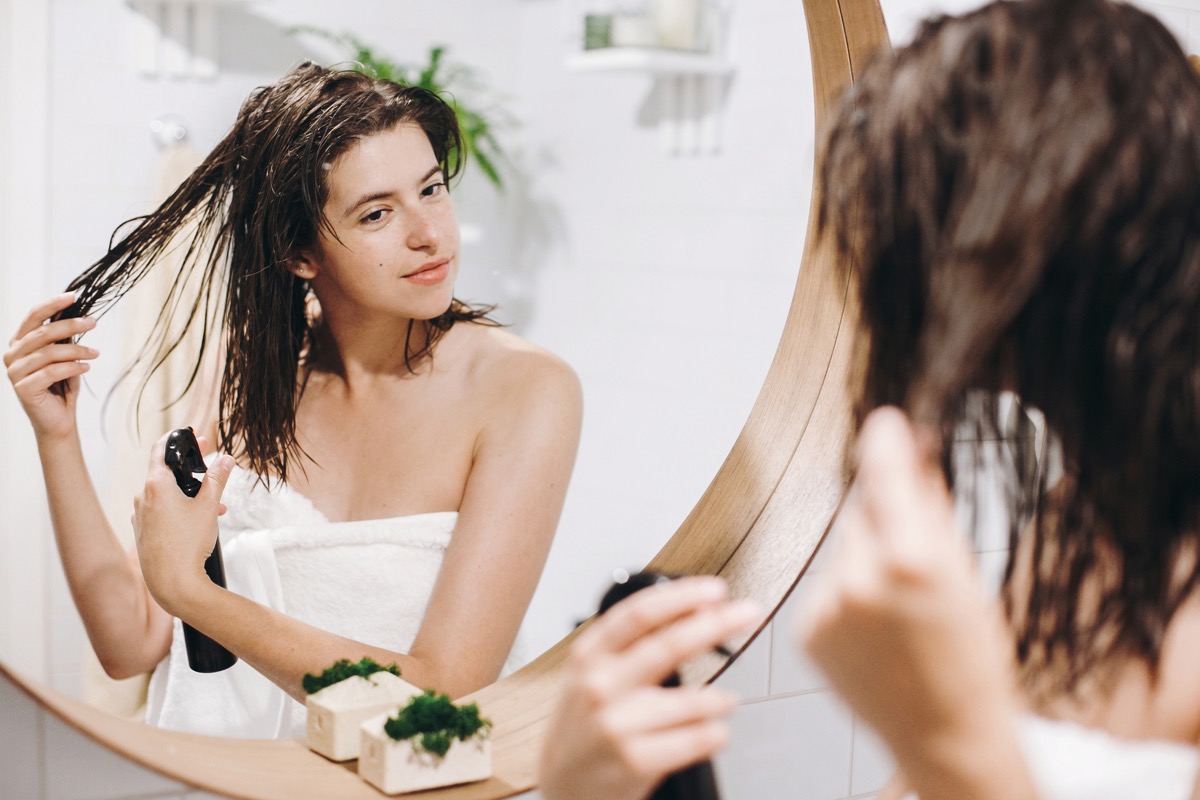
Ceasing shampoo use entirely, also known as the "no poo method", has yielded mixed results. Yet as a recent Marie Claire article points out, there's been a 1,025 percent increase in Google searches for the "no poo method" since the pandemic started—meaning it's clearly on people's minds.
While some have found that cutting out shampoo leaves their hair greasy and flat, others have used it as an easy way to restore their hair's natural oils and increase body. It all comes down to your hair type. Those with naturally dry, curly, or coarse hair are more likely to see favorable results, while those with fine, straight strands and more natural oils will likely struggle with water alone. But hey, no harm in trying it—especially during lockdown while there's no one there to see it if things go wrong. And for more tips for a great hair day, check out What's New In Men's Hair Care.
